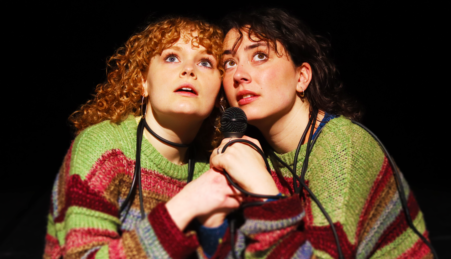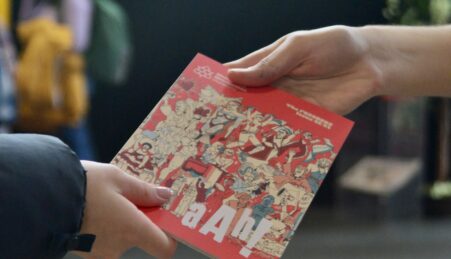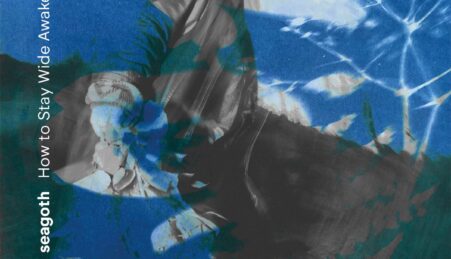By Hassan Irshad
Manchester Metropolitan University researcher collective Feminisms in Public presented ‘Sara Ahmed and Everyday Feminism’, an event focusing on the challenges, successes – and necessity – of everyday feminism.
The popular feminist writer Sara Ahmed, talked about the importance of ‘Everyday Feminism’, and was hosted by Manchester Met Lecturer in Contemporary Postcolonial and World Literature, Muzna Rahman.
The event, run in partnership with Manchester Metropolitan University’s Research in Arts and Humanities programme (RAH!), featured readings from Ahmed’s book, Living a Feminist Life, and discussed the role of intersectional feminism and its relationship with institutions and society at large.
Ahmed discussed difficulties of addressing instances of racism and sexism in today’s society. She said, “Pointing out instances of racism and sexism are dismissed because of racism and sexism.” She added, “The feminist who points these instances out is dismissed, because she is seen as sensationalising the matter, and that she is being emotional.”
In an extract from Living a Feminist Life, she describes the idea of a ‘killjoy’ feminist figure who is seen as always ‘wound up’. She said, “Feminists are wound up because they recognise problems that wind them up. In looking for problems, they become the problem.”
She went on to relate this to her situation growing up, where at the dinner table, she would hear talk, mostly from her father, that she described as ‘problematic’, until eventually she spoke up, and became the ‘killjoy’ herself.
In another extract from her book, Ahmed describes the ‘Feminist at work’, providing her own anecdotal experience of working in an institution. In this instance, she was the only feminist of colour in the department, and claims she was not held in the same regard as her white male professor colleague.
Ahmed offered the idea that ‘institutional passing’ makes it easier for those who have ‘assumed residence’. To combat these structures, she posits that spaces to discuss racism should be organised for people of colour, where one would not be questioned why the racism is being discussed in the first place. In addition, it would help feminist women of colour to ‘take a break from whiteness’, which is the society-wide institution that oppresses women and people of colour.
During audience questions, the issue of gender balance among Faculty staff not being representative of the student gender balance was raised, as well as campus sexual harassment. One statement that caused a collective gasp among the audience came from Ahmed’s discussion of her ongoing research, where she found that male professors saw having sex with students as ‘perks of the job’. She insisted that the culture which allows this behaviour to occur needs to be examined, especially in the wake of the recent scandals in Hollywood.
Ahmed spoke of intersectionality towards the end with particular emphasis on sexism and race; she claimed it was because of sexism and racism that evidence of sexism and racism were discounted.
Muzna Rahman added, “These are structures of power that are geared toward to benefit a particular group of people, and they use that power to their advantage. I think that’s what a lot of institutions are structured like, and I think particularly Hollywood is like that.”
Rahman added, “There are structures and institutions that have operated for decades in a particular way that requires the need for feminism in the first place. In terms of diversity, the whole system needs to be overhauled, instead of just having an officer for diversity.”
One audience member expressed her disappointment with Sara Ahmed in a comment at the end of the event, in which she stated that it was a “shame” that she voices her support for women and people of colour, but failed to adequately respond to her email asking for support for a situation where she was dropped from studying her PhD, and learnt that her lecturers had expressed “racist and xenophobic” comments directed towards her.
Ahmed responded by saying that although she hoped to eliminate such circumstances and campaigned against it, she was sometimes prone to making mistakes, and it was not always the case that everyone would receive help.
Muzna Rahman summed up the talking points of the event succinctly, commenting: “I’m a feminist, because I believe in the equality of women and men; I’m a person of colour, so that means I see out of dimensions of power and equality, and that may not be as visible to other people, which is relevant to what Sara Ahmed talks about.”





Leave a reply